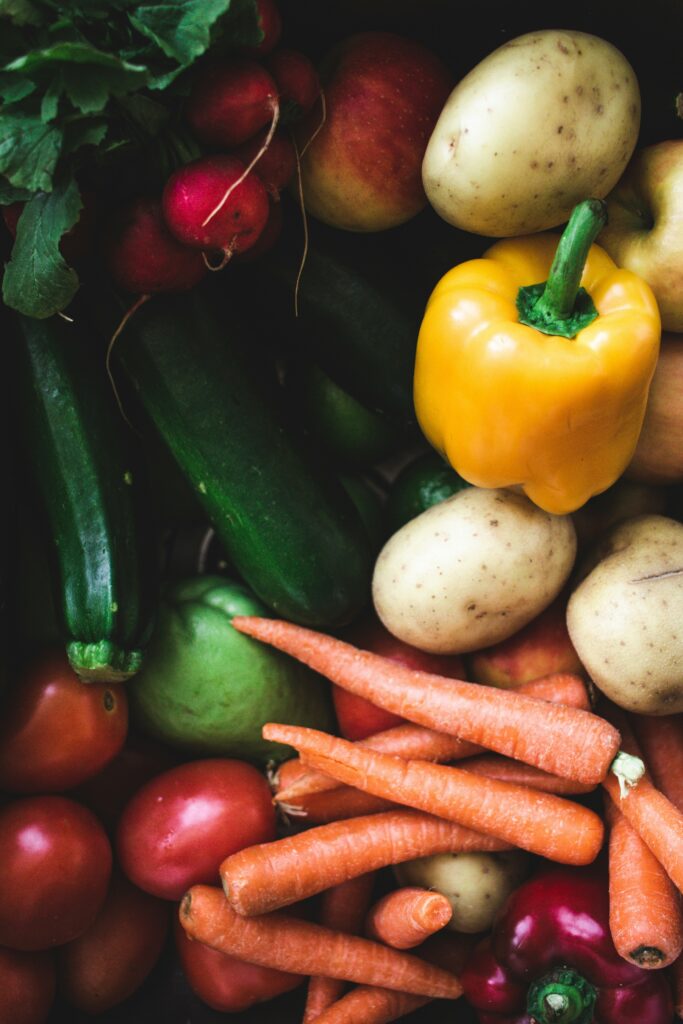Taking care of your gut is one of the best things you can do for your overall health. A happy gut means better digestion, glowing skin, balanced energy, and even improved mood. The easiest way to support your gut is by nourishing it with the right foods, and vegetables play a huge role in that. From fiber-packed leafy greens to gut-healing root veggies, incorporating the right vegetables into your diet can make a world of difference.
Why Your Gut Loves Vegetables
Your gut is home to trillions of bacteria, also known as the gut microbiome. These little microbes thrive on fiber, antioxidants, and natural plant compounds found in vegetables. When your gut gets the nourishment it needs, digestion improves, bloating decreases, and you feel more energized. Dr. Will Bulsiewicz, a board-certified gastroenterologist, explains, “The single greatest predictor of a healthy gut is the diversity of plants in your diet. The more varieties of vegetables you eat, the stronger your gut microbiome will be.”
Leafy Greens: The Ultimate Gut Healers
Dark leafy greens like spinach, kale, and Swiss chard are some of the best foods you can eat for digestion. They’re rich in fiber, packed with magnesium to keep your digestive muscles moving smoothly, and loaded with chlorophyll, which helps cleanse the gut. Registered dietitian Keri Glassman says, “Leafy greens act like a broom for your digestive system, sweeping away toxins and keeping everything flowing properly.”
If raw greens are tough on your stomach, lightly steaming them can make them easier to digest while still keeping all the gut-loving nutrients intact.
Cruciferous Vegetables: Power for Your Gut Bacteria
Broccoli, Brussels sprouts, cauliflower, and cabbage are part of the cruciferous vegetable family, and they’re incredible for digestion. They contain special sulfur-rich compounds that help detoxify the gut and feed good bacteria. While some people experience bloating from cruciferous vegetables, cooking them well and eating smaller portions at first can help your body adjust.
Dr. Mark Hyman, functional medicine expert, points out, “Cruciferous vegetables support detoxification and provide the gut microbiome with essential compounds that reduce inflammation and support digestion.”
Root Vegetables: Soothing and Nourishing for the Gut
Carrots, sweet potatoes, beets, and parsnips are gentle on the digestive system and packed with prebiotic fiber, which feeds the good bacteria in your gut. These vegetables help regulate bowel movements, reduce inflammation, and promote overall gut health. Sweet potatoes, in particular, are loaded with resistant starch, a type of fiber that acts as fuel for your gut bacteria.
Roasting or steaming these vegetables brings out their natural sweetness and makes them easy to digest, making them a comforting option for anyone with a sensitive stomach.
Fermented Vegetables: A Natural Probiotic Boost
Sauerkraut, kimchi, and pickled vegetables are like magic for gut health. Because they are fermented, they contain natural probiotics that help balance your gut flora and improve digestion. Adding a small serving of fermented vegetables to your meals can support better digestion, reduce bloating, and strengthen your immune system.
According to Dr. Megan Rossi, gut health expert and dietitian, “Fermented vegetables provide a powerful dose of good bacteria, which can enhance digestion and improve overall gut balance.”
Onions, Garlic, and Leeks: Gut-Friendly Flavor Boosters
These flavorful vegetables are packed with prebiotics, which are essential for gut health. Prebiotics act like fertilizer for good bacteria, helping them thrive. Garlic and onions also have antibacterial properties that can help eliminate harmful bacteria from the gut while allowing good bacteria to flourish. If raw garlic or onions upset your stomach, try roasting them or cooking them in soups and stir-fries to make them gentler on digestion.
A well-balanced gut leads to better digestion, reduced bloating, and overall well-being. The best way to nourish your gut is by eating a variety of fiber-rich, nutrient-dense vegetables that support a healthy microbiome. The more plant diversity you add to your diet, the happier your gut will be. As Dr. Will Bulsiewicz says, “When we feed our gut the right foods, we unlock the potential for better health, more energy, and improved digestion.”
So go ahead and fill your plate with colorful, gut-loving vegetables-your digestion (and your entire body) will thank you!





